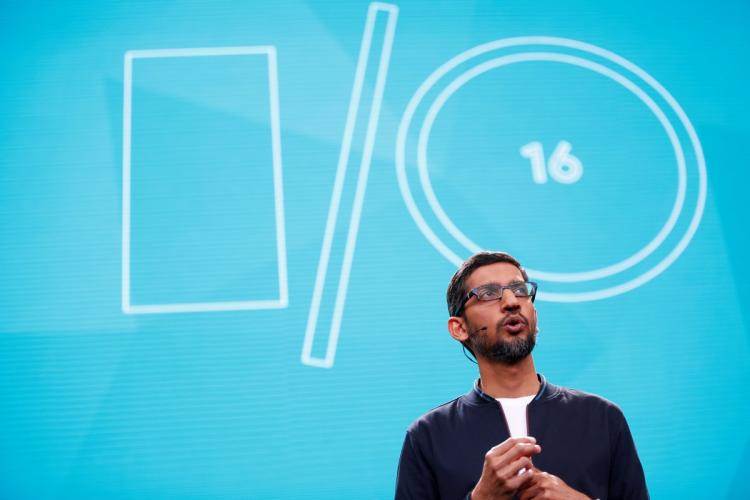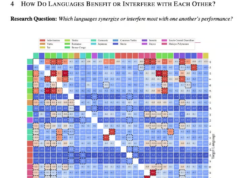During today’s kickoff keynote at Google’s I/O developer conference in Mountain View, Calif., CEO Sundar Pichai unveiled Google Assistant, a new intelligent software persona for smarter and more helpful conversations with Google.
In addition to working on mobile devices, Google Assistant will also be able to answer questions, book reservations and provide a range of other help via a new device called Google Home.
Home, much like the Amazon Echo, is a small, speaker-like device that “listens” to activities around the home and responds whenever users have questions or requests. Google did not say how much the device will cost, but it did reveal plans to release it later this year.
“Google Home has a significant advantage over other solutions like Amazon’s Echo because it has the entire, massive Google ecosystem behind it,” MachNation CTO and head analyst Dima Tokar told us via e-mail. “Google’s work in contextual awareness — the logical interpretation of text and voice queries — will be a significant differentiation.”
MachNation projects that the growing Internet of Things (IoT) market will see an annual compound growth rate of 42 percent over the next 10 years, meaning some 19.7 billion IoT devices will be connected by 2025.
Coming out sometime this summer are two new Google apps that were also previewed during today’s keynote: Allo and Duo. Allo, which will have Assistant built in, will provide faster, more streamlined access to other Google services during mobile chats, while Duo will be a one-to-one app for easier video calling on smartphones and other devices.
Google ‘Understands’ 1 Billion Entities
“We are evolving search to be much more assistive,” Pichai said at the start of the keynote presentation. Aided by machine learning and artificial intelligence, Google now has an “understanding” of 1 billion entities — people, places and things — around the world, Pichai said. “I believe we are at a seminal moment.” Over the next 10 years, machine learning and AI technology are poised to take a “big leap forward,” he added.
What that means for search and other Google-enabled assistance is that its offerings are becoming increasingly responsive, context-smart and interactive, Pichai said.
“We want users to have an ongoing two-way conversation with Google,” he told the estimated crowd of 7,000 at the outdoor Shoreline Amphitheatre. “We think of this as building each user their own individual Google.”
For example, Pichai demonstrated how Google Assistant can understand the context of the question, “Who designed this?” while a user is standing in front of The Bean sculpture in downtown Chicago and then give the correct answer (artist Anish Kapoor).
Messaging Apps, Android N and VR
Other Google team members followed Pichai on stage to provide more details about Allo, Duo and the coming update to Google’s mobile operating system, referred to for now as Android N.
Product marketing manager Rebecca Michael led a demonstration showing how Allo lets users on mobile devices have a group chats, get suggestions for where to eat locally and automatically book reservations at selected restaurants — all without leaving the Allo app. “What we’re seeing here is completely new,” Michael said. “For the first time, you can use Google in your chats with your friends.”
Eric Kay, Google’s director of engineering for communications products, took the stage after Michael to talk about Allo’s built-in privacy and security, including the option for incognito chats that are end-to-end encrypted and can be permanently deleted afterward if users so choose.
Kay also showcased Duo, the video calling app that will include a feature called Knock Knock that lets individuals view real-time, live video previews of the people calling before they decide to pick up the calls. Like Allo, Duo will offer end-to-end encryption, Kay said.
Dave Burke, vice president of engineering, followed with an overview of the security and other improvements that will come out with Android N, which also rolled out in beta today. He added that users can make suggestions for the candy or confection “N” will stand for at Android.com/N.
Android N will also provide new and advanced built-in support for virtual reality (VR) applications. Google has already worked with a number of original equipment manufacturers, including Samsung, HTC and Huawei, to ensure that new smartphones coming out later this year will support the VR specifications Google has developed.
Image Credits: Screenshots via 2016 Google Developer Conference (keynote) video.






